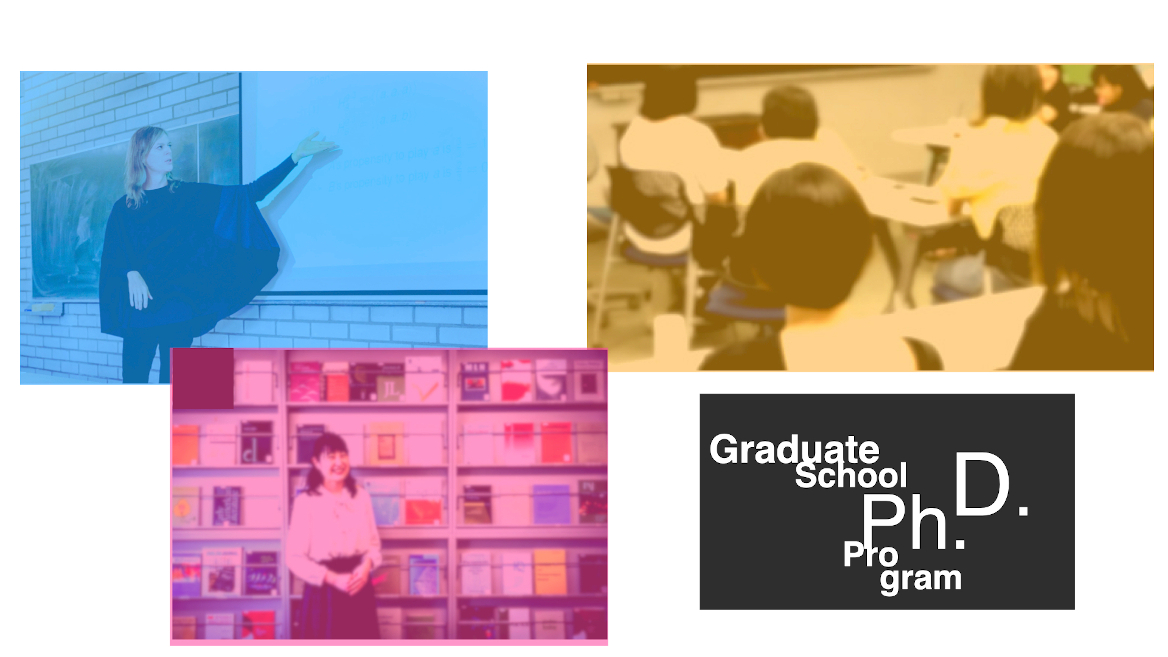
Courses and research scope
The doctoral, Ph.D. program in English at Aoyama Gakuin University is structured so as to provide students with a unique and exciting opportunity for interdisciplinary research and study in English Language and Linguistics, English and American Literature, Communication Studies, and English Language Education, and also for specialised research within any of these areas.
The Department of English at Aoyama Gakuin University is one of the oldest English departments in Japan, with an international reputation for excellence and innovation, and a long tradition of offering courses in English Language and Literature which have led graduating doctoral students to contribute to the larger issues of global social, industrial and technological development. Graduate education in the English Department continues to offer the very latest perspectives on contemporary, and likely future, directions in English Studies with the aim of further promoting local and global social, industrial and technological development.
Daytime and evening courses can be taken in each semester separately, or for a full year, and offer opportunities for engaging with a wide range of skills and knowledge bases involved in English Studies. These may include courses with topics such as the following:
– how to conduct quantitative, qualitative, ethnographic and mixed methods research into language use, and language acquisition (e.g.,Allen, Nobe, Onodera, Robinson);
– understanding issues in psycholinguistics and the study of language acquisition, speech processing, as well as the processes involved in translation, and their application to many issues of practical everyday application, such as language teaching and translator training (e.g., Allen, Dias, Ino, Nobe, Robinson, M. Tanaka) ;
– how to research and describe historical contexts and their influence on literary texts such as the novels of Jane Austen or William Faulkner, the plays of William Shakespeare, or the poetry of Walt Whitman and Hart Crane; (e.g., Aso, Date, Knighton, Kuno, Kuruma, Nishimoto, Matsui, Y.Tanaka, Tonooka, Wakabayashi);
– understanding linguistic, societal, and ethical perspectives on literature, literary criticism and analysis (e.g., Hashimoto, Knighton, Nishimoto, Saito, Yuki);
– how to describe pragmatic influences on speaking and understanding (e.g., Dias, McCready, Nobe, Onodera);
– understanding cross-cultural influences on contemporary communicative style and interaction (e.g., Dias, Okawa, Onodera, Reimann, Nobe);
– how to analyze nonverbal behaviors in everyday human interactions (e.g., Nobe);
– understanding the history of the English language, and its development, as informed by a study of Old and Middle English literary texts (e.g., Dabbs, Sasakawa, Terasawa);
– understanding the causes leading to, and procedures for describing, language variation and change (e.g., Nakamura, Onodera, Terasawa);
– understanding issues and analytic techniques involved in the study of usage-based, functional, cognitive linguistic, and formal approaches to the description of the syntactic, semantic and phonological properties of English (e.g., McCready, Nakamura, Takahashi, Yokotani).
Faculty
Many faculty teaching graduate courses in the areas of English Language and Linguistics, English and American Literature, Communication Studies, and English Language Education are available to supervise research at the doctoral level. These graduate faculty members have published many books and peer reviewed journal articles both within Japan, and internationally (a sample of their publications can be found here on English dept website). Many graduate faculty members serve either as editors of book series (e.g., Yuki, Robinson), or on editorial boards of prestigious local and international peer reviewed journals (e.g., Dabbs, Knighton, Robinson, Takahashi).



